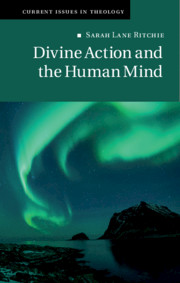Book contents
- Divine Action and the Human Mind
- Current Issues in Theology
- Divine Action and the Human Mind
- Copyright page
- Dedication
- Contents
- Acknowledgements
- Part 1 Divine Action and the Hard Problem of Consciousness
- 1 A Cartography of Crisis
- 2 Contemporary Divine Action Theories and the Causal Joint
- 3 Divine Action and Mind
- 4 The Philosophy and Science of the Mind
- 5 Physicalist Approaches to Consciousness
- Part 2 The Theological Turn
- Bibliography
- Index
2 - Contemporary Divine Action Theories and the Causal Joint
from Part 1 - Divine Action and the Hard Problem of Consciousness
Published online by Cambridge University Press: 02 August 2019
- Divine Action and the Human Mind
- Current Issues in Theology
- Divine Action and the Human Mind
- Copyright page
- Dedication
- Contents
- Acknowledgements
- Part 1 Divine Action and the Hard Problem of Consciousness
- 1 A Cartography of Crisis
- 2 Contemporary Divine Action Theories and the Causal Joint
- 3 Divine Action and Mind
- 4 The Philosophy and Science of the Mind
- 5 Physicalist Approaches to Consciousness
- Part 2 The Theological Turn
- Bibliography
- Index
Summary
In Chapter 1, I introduced Nicholas Saunders’s claim that insofar as it requires an affirmation of ongoing divine action, Christian theology is in a “state of crisis.” On one hand, contemporary science has arguably proved to be the most successful knowledge-seeking endeavour in human history. Scientists consistently offer increasingly nuanced explanations for phenomena previously considered to be inherently mysterious or even spiritual. For many, science is even considered the final arbiter of all truth claims about reality. At the very least, it is increasingly difficult and arguably unwarranted to make theological claims running contrary to the body of knowledge developed by the natural and social sciences. Christian theology is committed to certain doctrinal affirmations that may not always appear – at least on the face of it – consistent, or at least demonstrable, with current scientific knowledge. This is perhaps most true in the case of divine action: the more that scientists learn about the laws of nature and physical mechanisms, the more difficult it becomes for many to affirm that God does things in the natural world. On the other hand, however, a robust Christian theology would seem to require an account of God’s personal, continual interaction with not only human persons but also the whole of nature. A theological retreat into a divinely unresponsive form of deism is an unsatisfactory response to scientific knowledge, insofar as it abandons much of the relational, dynamic narrative of Christian theism. This tension has led many in the science-and-religion field to seek ways of affirming both scientific knowledge and theological claims of divine action.
- Type
- Chapter
- Information
- Divine Action and the Human Mind , pp. 32 - 80Publisher: Cambridge University PressPrint publication year: 2019

